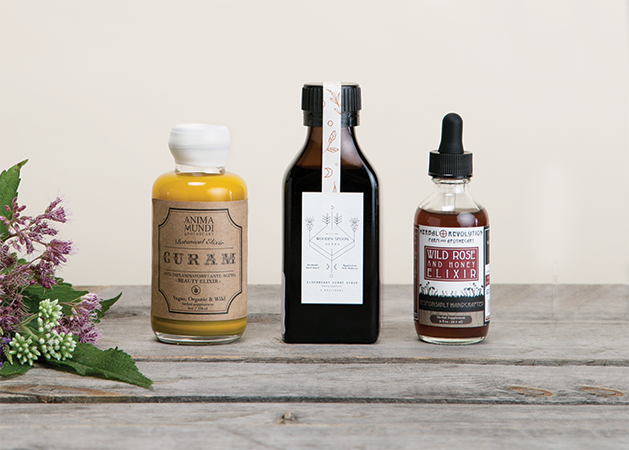
Talk of alternative medicine seems to be everywhere these days. Once dismissed (at least in the West) as little more than pseudoscientific quackery, the practice has found its footing in the mainstream within recent years. But what makes it different from conventional medicine? It might be trendy, but is it safe and effective? What, exactly, is it even an “alternative” to? If you’re new to the world of alternative medicine, you’ve likely got questions. Thankfully, local experts have answers.
What is alternative medicine?
Put simply, alternative medicine—sometimes also called integrative or complementary medicine—involves any set of medical treatments that have traditionally been excluded from mainstream practices. It encompasses a wide spectrum of therapies and could involve anything from using essential oils to for a better night’s sleep to visiting an acupuncturist for help with chronic pain. Advocates generally cite treatments that can be less toxic and invasive than traditional medicine, fewer side effects and a whole-person approach to healing as its major benefits. But even the most passionate proponents agree—it’s not necessarily a substitute for but rather a complement to conventional care.
The initials N.D. might be less familiar to you than M.D., but anyone with these letters behind their name is still a licensed and accredited care provider. Nate Champion is a naturopathic doctor (N.D.) who—along with his wife, Nita—owns Champion Health in Minnetonka. Their practice takes a holistic approach to various health issues, particularly ones related to nutrition and digestion.
“We’re addressing and treating the underlying cause, rather than merely palliating with a treatment,” he says. Though he takes a different approach to individual health than a primary care physician might, he’s far from dismissive of mainstream medicine and recommends conventional procedures when it’s clear his patients could benefit from them.
“We refer to the appropriate conventional specialists when it’s necessary. On a daily basis, we’re still sending people for traditional bloodwork and imaging—CTs, MRIs, X-rays, and so on,” he says. “But in addition to that, we use a lot of specialized testing, like stool culture testing, saliva testing and urine testing—things that just give us a more complete picture of what’s going on versus just the standard imaging and bloodwork in the conventional world.”
Like conventional doctors, naturopathic doctors receive years of training. Like a medical doctor, both Champions attended four-year medical school and completed a clinical internship. “In that, you learn all of your conventional medicine—pharmacology, cardiology, all of that,” Champion says. “It’s just that throughout those four years, you’re also learning a lot of natural therapies, everything from herbs to supplements to acupuncture.”
The primary difference between naturopathic medicine and traditional medicine is in the approach to health. “I don’t want to imply that the average conventional doctor doesn’t want to figure out what’s wrong with the person—it’s just that our approach is different in the sense that we’re trying to take a really deep look at the underlying cause and use safer, less toxic therapies,” Champion says.
While traditional medicine tends to be palliative, alternative medicine—and naturopathy in particular—aims to address the cause of a particular issue, rather than temporarily alleviating the obvious symptoms. Champion says digestive problems, particularly irritable bowel syndrome (IBS), are among the most common issues he sees. While primary care physicians will typically run tests to rule out serious issues like Crohn’s disease, ulcerative colitis and celiac disease, rarely do they prescribe treatments that get to the root cause of the problem.
“In the end, all this extensive testing gets done to rule out these scary things, but you might just get told to modify your diet. So, you could try doing things on your own, but your symptoms just go up and down for years…. A lot of people feel like they get bounced around without getting answers,” he says. “Something a lot of folks will say to us [is], ‘I finally have answers that I’ve been searching for for years.’ They just weren’t getting them in the conventional world.”
Brian Grosam is a licensed acupuncturist who specializes in women’s reproductive health and menopause. He runs Sun Acupuncture alongside his wife, Pam, who specializes in a Chinese medical massage known as Tui Na, as well as other traditional Chinese therapies. Like Champion, Grosam says he also sees many patients who haven’t been able to find answers in traditional Western medicine.
“Sometimes, there’s not going to be a shot or a pill or a surgery that’s going to help people. A lot of people go to their primary healthcare doctors and find out that there’s nothing that these doctors can do for them,” Grosam says. “What we do is we keep people healthy. The whole idea of preventative medicine is truly that—we prevent people from getting sick, and we help with a lot of things that other forms of medicine sometimes can’t help with.”
Most of Grosam’s patients come in seeking relief from chronic pain. “I’d say at least 50 percent are here for different types of pain and injuries. That’s a lot of what we do in acupuncture—the headaches, the neck pain, the back pain—but I’m also helping a lot of women with fertility and menopausal issues and regulating periods. I’m getting both kids and adults who have skin conditions, mental and emotional disorders like anxiety and depression, as well as stress and insomnia.”
Is it the right fit for you?
Grosam also recommends doing research to locate the right fit. “You have to find a qualified, trained practitioner—someone who has gone to school for it. I always say if you have any questions, just call me. I’d be happy to talk with people, because I know a lot of people have a ton of questions,” he says. “If you’re dealing with a particular condition and wondering if acupuncture or herbs or whatever could help with something like that, I’ll let you know if that’s something we can treat or if you should take a different route instead.”
And while certain types of alternative medicine are gradually becoming covered by insurance plans, patients seeking out non-mainstream forms of care should be prepared to pay out of pocket. “Acupuncture is covered by some insurance plans,” Grosam says. “We always need to check with insurance companies to see if patients do qualify, but there are a lot of people who have to pay out of pocket, because it’s not always covered.”
what is plant medicine?
Sometimes, a cure to a certain condition could be close as your backyard. Jodi McKee is the owner of Jewelweed, a health and wellness boutique in downtown Wayzata. When her oldest son was a baby and facing respiratory issues traditional medicine offered few suitable solutions for, she started researching herbal remedies and has since become an expert in natural health and wellness.
“I have three boys, and I’ve raised them with herbs and natural health in mind. My garden is full—I think I counted [about] 50 medicinal plants last year,” McKee says. “Anyone who has a yard probably also has a decent amount—they just don’t know it yet.”
From tinctures to salves to essential oils, Jewelweed sells a wide range of herbal remedies and natural health and wellness products, some made by McKee herself. She says stress is among the easiest problems to treat with herbs. “There’s this whole category of herbs called adaptogens, and they help the body cope with stress. You can take them as teas and tinctures; you can add them to your food,” she says. “Digestive issues are another common one—everybody’s having problems with that. But if you’re taking antacids or popping that kind of stuff, there won’t be healing in that. Using bitters is one thing that’s really easy for digestion.”
Though Jewelweed is relatively new, McKee has big plans for its immediate future, including continuing with classes to introduce newcomers to the world of natural medicine. “Tinctures and salves are things that everybody can make and you already have access to if you have a yard or a garden or any place where you can pick weeds,” she says. “These preparations of herbs are easily taught and can be easily integrated into your life.”
McKee also emphasizes herbal remedies are a potentially helpful first step to avoid what could be an unnecessary trip to the doctor. “It’s not that I don’t go to the doctor or think other people shouldn’t; I go when I need to,” she says. “My whole point is teaching people how to listen to their body and use natural, really gentle things when possible rather than drugs full of chemicals and manufactured products. When there are plants that people have been using for forever, why not use those?”









